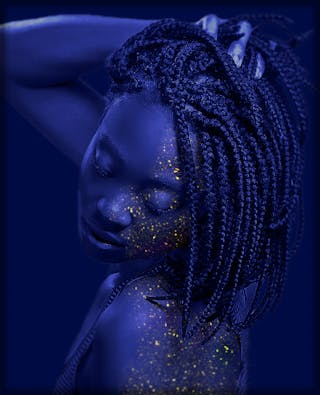Understanding Asexuality: Am I Asexual?
Are you tired of the same old dating scene? Ready to discover something new and exciting? Look no further than this website to find the finest escorts in Scottsdale. Whether you're looking for companionship or a fun night out, these escorts are sure to provide a memorable experience. Say goodbye to boring dates and hello to something unforgettable.
In a world where sexuality is often seen as a defining aspect of a person, it can be confusing and isolating to realize that you may not fit into the traditional mold of sexual attraction. For some individuals, they may find themselves questioning whether they are asexual, a sexual orientation that is often misunderstood and overlooked. If you find yourself asking, "Am I asexual?" it's important to explore this aspect of your identity and understand what it means to be asexual.
Try out the Donger Brothers review on SexyLinx and see for yourself what all the buzz is about.
What is Asexuality?
Check out Blackpool's exciting escort scene and experience it for yourself.
Asexuality is a sexual orientation characterized by a lack of sexual attraction to others. This does not mean that asexual individuals do not experience romantic or emotional attraction; rather, they do not feel the same level of desire for sexual intimacy as others. Asexuality exists on a spectrum, and individuals may identify as asexual, gray-asexual, or demisexual, depending on their experiences and levels of sexual attraction.
Discover Islington in a unique way
Understanding Asexual Identity
For many individuals who are questioning their sexual orientation, it can be helpful to explore their feelings and experiences in order to better understand their identity. Asexuality is often a misunderstood and stigmatized orientation, and it can be challenging to come to terms with this aspect of oneself. It's important to remember that asexuality is a valid and legitimate sexual orientation, and there is no right or wrong way to experience sexuality.
Exploring Your Feelings
If you find yourself questioning whether you are asexual, it's important to explore your feelings and experiences in order to better understand your sexual orientation. Reflect on your past experiences with sexual attraction and intimacy, and consider how these experiences have shaped your understanding of yourself. It can also be helpful to seek out resources and communities that support asexual individuals, as connecting with others who share similar experiences can provide validation and understanding.
Talking to Others
If you are unsure about your sexual orientation, it can be helpful to talk to trusted friends, family members, or mental health professionals about your feelings. Having open and honest conversations about your experiences can provide you with support and validation, and it can also help you gain clarity about your identity. Additionally, seeking out asexual communities and support groups can be a valuable way to connect with others who understand and validate your experiences.
Navigating Relationships
For asexual individuals, navigating relationships and dating can present unique challenges. It's important to communicate openly and honestly with potential partners about your sexual orientation and boundaries. Some asexual individuals may choose to pursue romantic relationships without a sexual component, while others may seek out partners who also identify as asexual. It's important to prioritize your own comfort and well-being in relationships, and to seek out partners who respect and support your identity.
Embracing Your Identity
Ultimately, coming to terms with your sexual orientation is a deeply personal and ongoing process. It's important to give yourself the space and time to explore your feelings and experiences, and to embrace your identity in whatever way feels authentic to you. Whether you identify as asexual, gray-asexual, demisexual, or another orientation, your experiences and feelings are valid and worthy of respect. Embracing your asexual identity can be a liberating and empowering experience, and it can provide you with a sense of community and belonging among others who share similar experiences.
In conclusion, if you find yourself questioning whether you are asexual, it's important to explore your feelings and experiences in order to better understand your sexual orientation. Asexuality is a valid and legitimate orientation, and there is no right or wrong way to experience sexuality. By connecting with others, seeking out support, and prioritizing your own well-being, you can navigate your asexual identity with confidence and pride. Remember, you are not alone, and there is a community of individuals who understand and validate your experiences.
- https://meet-women.timebombrecordings.com/posts/work-wife-when-a-work-colleague-becomes-a-true-friend/
- https://find-a-girlfriend.themountaintopplay.com/posts/how-to-lick-a-girl-out-how-to-eat-a-girl-out-oral-sex-tips/
- https://location-dating.ua-sex.com/posts/lesbian-erotica16-best-lesbian-and-samesex-erotic-novels/
- https://hookupsites.timebombrecordings.com/posts/how-dating-a-narcissist-changes-you-relationships-with-npd/
- https://dating-guide.timebombrecordings.com/posts/13-cowgirl-sex-positions-how-to-do-the-cowgirl-sex-position/
- https://sex-chat.thehottieandthenottie.com/posts/the-25-best-sexy-pyjamas-to-shop-for-valentines-day-2024/
- https://hookupsites.thehottieandthenottie.com/posts/what-is-the-ankles-as-earrings-tiktok-sex-position/
- https://dating-chat-room.thehottieandthenottie.com/posts/my-best-sex-ever-was-with-a-love-islander/
- https://datingguide.campsupernow.com/posts/what-does-it-mean-to-be-aegosexual/
- https://dating-for-free.themountaintopplay.com/posts/swinger-clubs-and-sex-parties-london-uk/
- https://dating-guide.getweps.com/posts/how-to-ask-for-what-you-want-in-bed-and-during-sex/
- https://location-dating.ua-sex.com/posts/queer-dating-app-just-launches-thirst-mode-for-pride-month/
- https://datingguide.campsupernow.com/posts/5-wand-vibrator-sex-positions-that-are-magical/
- https://hookup.timebombrecordings.com/posts/wand-vibrators-best-sex-wands/
